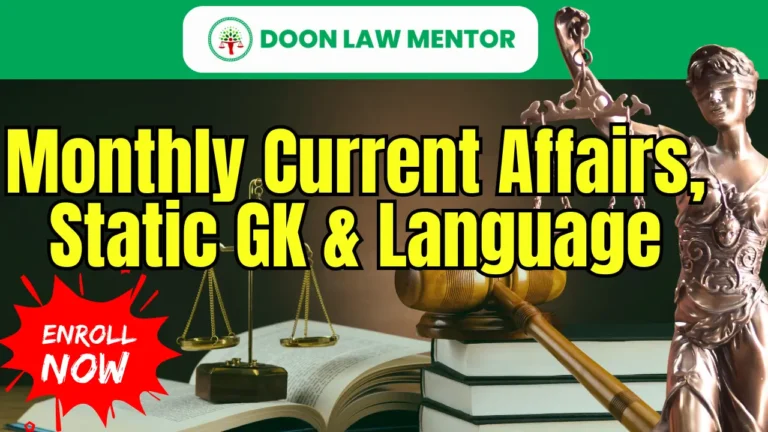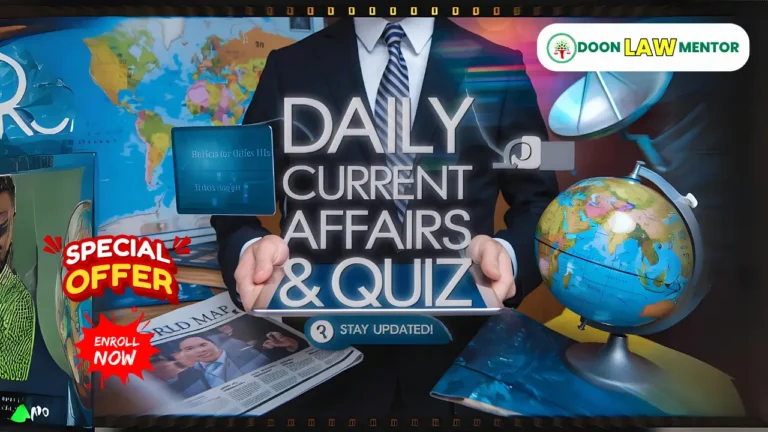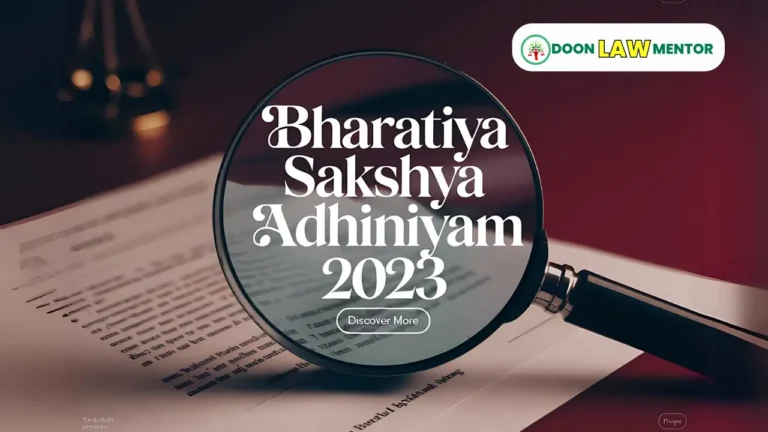Introduction
The Supreme Court of India has stayed the Gujarat Judiciary Civil Judge JMFC recruitment process, questioning the absence of a minimum practice requirement for judicial candidates. The court’s decision could reshape judicial service eligibility criteria nationwide. With the final judgment pending, this ruling directly impacts judiciary aspirants and the future of judicial recruitment policies in India. 📜⚖️
Table of Contents
In a significant development, the Supreme Court of India has stayed the recruitment process for the Judicial Magistrate of First Class (JMFC) in Gujarat, expressing dissatisfaction over the Gujarat High Court’s decision to proceed with recruitment without requiring a minimum number of years of legal practice. The Court’s decision has direct implications on the eligibility criteria for entry-level judicial service and is expected to shape future judicial recruitment policies.
🔗 Read More: Supreme Court of India
🔹 Background of the Case
✅ Issue with Gujarat Judiciary JFMC Recruitment Process
- The Gujarat Public Service Commission (GPSC) issued an advertisement for the recruitment of JMFC posts.
- The advertisement did not specify any requirement for minimum years of legal practice as a prerequisite for applying.
- The Supreme Court noted that a three-judge bench has already reserved judgment on whether fresh graduates should be allowed to apply for judicial positions without prior advocacy experience.
📌 Key Question: Should a minimum practice period be mandatory for entry into judicial service?
🔹 Supreme Court’s Observations
A bench comprising Justice BR Gavai and Justice Augustine George Masih stated that:
📜 “The question of whether some number of years should be prescribed as a minimum qualification for enabling a candidate to apply for JMFC is pending before a three-judge bench of this Court. Since the matter is reserved for judgment, the Gujarat High Court should not have rushed through the recruitment process.”
🔹 Key Orders from the Supreme Court:
✅ Issued notice to the Gujarat High Court and the State of Gujarat.
✅ Directed the Chief Secretary of Gujarat and Registrar General of the High Court to respond.
✅ Stayed all proceedings related to the JMFC recruitment in Gujarat.
✅ Set the next hearing date for March 18, 2025.
🔗 Related Case: All India Judges Association Case
🔹 Implications of the Supreme Court Order
1️⃣ Impact on Judicial Recruitment in Gujarat
- The Gujarat High Court must halt the recruitment process until the Supreme Court delivers its final verdict.
- Future JMFC recruitment in Gujarat could be subject to revised eligibility criteria.
2️⃣ Nationwide Ramifications for Judicial Appointments
- The decision will affect judicial service recruitment across India.
- The Supreme Court’s judgment (when delivered) will likely standardize the eligibility criteria for Civil Judges and JMFCs across states.
3️⃣ Debate on Minimum Practice Requirement
- If the Supreme Court rules in favor of requiring minimum years of practice, fresh law graduates may not be eligible for direct recruitment into the judiciary.
- If no practice requirement is mandated, law graduates will be allowed direct entry into judicial services without advocacy experience.
🔹 Response from Legal Experts and Judiciary
🔹 Arguments in Favor of Minimum Practice Requirement
✅ Senior advocates argue that judicial officers should have litigation experience before becoming judges.
✅ Prior advocacy practice helps enhance judicial reasoning and practical understanding of court procedures.
✅ Many states already require 3 to 7 years of practice before allowing direct recruitment into the judiciary.
🔹 Arguments Against Minimum Practice Requirement
❌ Legal scholars argue that fresh law graduates may bring new perspectives and fresh legal interpretations.
❌ Countries like the UK and the USA allow fresh graduates to join judicial training programs without prior advocacy experience.
❌ Requiring years of practice could limit opportunities for deserving young candidates who aspire to be judges.
🔹 Next Steps in the Case
📌 The Supreme Court has scheduled the next hearing on March 18, 2025.
📌 The judgment reserved by the three-judge bench on the eligibility of fresh law graduates for judicial service will be critical in shaping the future of judicial recruitment in India.
📌 The Gujarat Government and High Court are required to submit their responses before the next hearing.
📌 Frequently Asked Questions (FAQs)
1. Why did the Supreme Court stay the Gujarat JMFC recruitment process?
The Supreme Court stayed the recruitment process because the Gujarat High Court proceeded without considering the pending judgment on whether a minimum practice requirement should be mandatory for judicial officers.
2. What is the key issue in this case?
The key issue is whether fresh law graduates should be allowed to apply for judicial services without prior legal practice experience.
3. What will happen to the ongoing recruitment process in Gujarat?
The recruitment process is on hold until the Supreme Court delivers its final judgment on the eligibility criteria for JMFC positions.
4. When is the next hearing in this case?
The Supreme Court will hear the matter on March 18, 2025.
5. How does this case affect judicial recruitment across India?
The ruling will set a nationwide precedent for judicial service recruitment eligibility criteria, impacting all state judicial exams.
#JudiciaryExam #SupremeCourt #GujaratHC #LawUpdates #JudicialRecruitment #JMFC #LawStudents #AdvocacyExperience #LegalNews #Doonlawmentor









